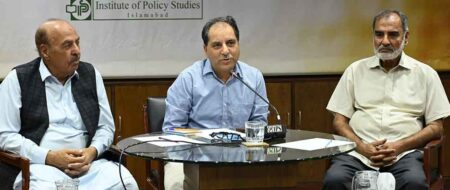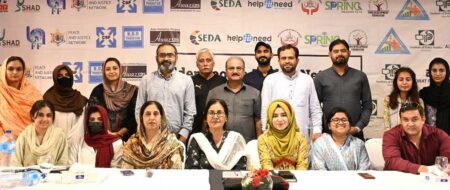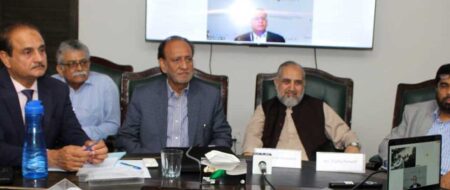Political Challenges and External Pressures: A Case Study of Cuba
A lecture by Cuban Ambassador, H.E. Gustavo Machin Gomez, on “Political Challenges and External Pressures: A Case Study of Cuba” was organized on May 21, 2008 and was chaired by former Secretary General, Foreign Affairs, Akram Zaki. Prof. Khurshid Ahmed, Chairman IPS, was the discussant at the event.
Activity: Public SeminarSpeakers: Cuban Ambassador, H.E. Gustavo Machin Gomez; Prof. Khurshid Ahmed, Chairman IPSChair: Akram Zaki, former Secretary General, Ministry of Foreign Affairs, Govt. of Pakistan
 Mr. Gomez observed that the ‘Cuban will to resist’ prompted 184 of the 192 members of the United Nations General Assembly to vote against the blockade last year. “Power has its limits. Resistance to hegemony is growing in Latin America,” he maintained.
Mr. Gomez observed that the ‘Cuban will to resist’ prompted 184 of the 192 members of the United Nations General Assembly to vote against the blockade last year. “Power has its limits. Resistance to hegemony is growing in Latin America,” he maintained.The small island of 11 million people had developed an excellent healthcare system, said the ambassador. Thirty-seven thousand Cuban health workers were helping people in 79 countries. They had restored sight to one million patients since July 2004 and the target was treating blindness of six million patients in Latin America in 10 years, he said.
“We are willing to share our best, but do not believe in teaching others how to do things,” he said enunciating the principles of his country's foreign policy.
Concluding the session, Mr. Akram Zaki said that laws were needed ‘more for the protection of the small and the less powerful ones.’
Delineating on the 'psyche of power,' DG IPS stated in his opening remarks, that the “aggression of power” gives birth to the politics of force, coercion, oppression, threats and pressures.
Mr. Rahman also mentioned that the seminar proceedings would be published in the coming issue of “Policy Perspective” Jul Dec 2008.


















